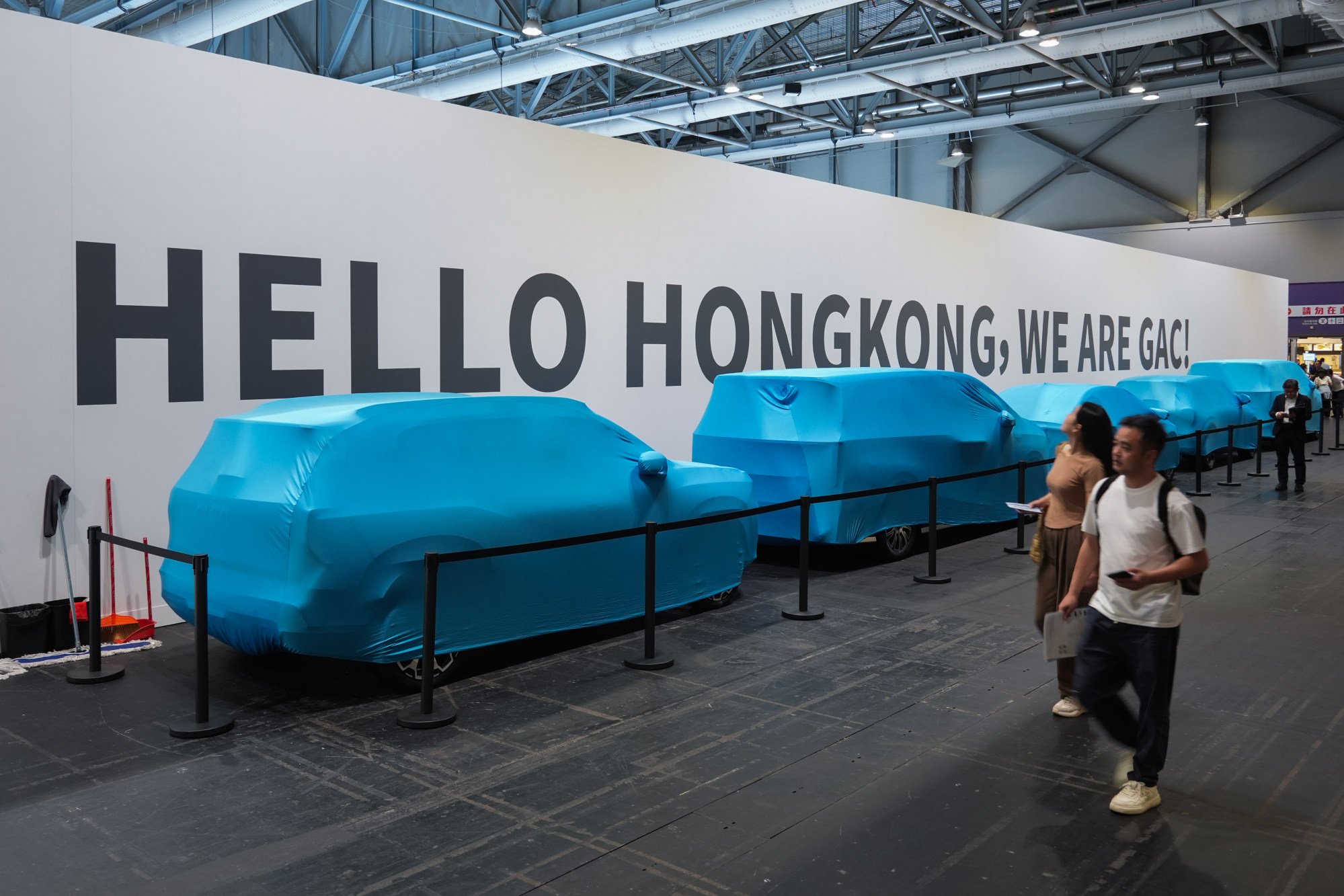Miraco Motor hopes to grab 10 per cent of Europe’s annual sales of 1.7 million vans
A commercial-vehicle subsidiary of China’s state-owned carmaker
GAC Group
has its sights set on Europe, where it hopes its electric vans can lure corporate buyers away from petroleum-powered models built by the likes of Ford and Stellantis.
Xiao Ning, CEO of Miraco Motor, told the Post that the company would launch its first model in Europe next year. It aims to grab 10 per cent of the European market, where more than 1.7 million vehicles of this type are sold each year for public transport, goods delivery, emergency services and commuting.
“Electric commercial vehicles have an overwhelming advantage over petrol rivals because of electricity’s lower cost than gasoline,” he said. “Our van will compete against six to seven rivals there, and we think it’s reasonable to target a 10 per cent share.”
Do you have questions about the biggest topics and trends from around the world? Get the answers with
SCMP Knowledge
, our new platform of curated content with explainers, FAQs, analyses and infographics brought to you by our award-winning team.
Established in late 2023 and based, like GAC, in Guangzhou in southern China’s Guangdong province, the company is displaying its prototype models in Hong Kong at the International Automotive & Supply Chain Expo, which ends on Sunday.
Miraco’s battery-powered vans can go as far as 350km on a single charge. Xiao said the company also planned to offer autonomous-driving systems so that its vans could vie for a share of the robotaxi industry around the world.
The company uses a modular design approach that separates the drivetrain components from the cabin and cargo areas, to make it easier to spin out new models.
Its first production model, a minibus, would hit the Hong Kong market this year, he said.
Unlike Chinese-made battery-powered
electric vehicles (EVs)
for passenger use, which are subject to
an up to 45.3 per cent additional tariffs in the European Union
, commercial vehicles assembled in China do not face trade barriers in the bloc.
Miraco has partnered with Flynt, a European electric-van developer, to crack the market, Xiao said. The two will co-design products that Miraco will build, with Flynt selling the vehicles and providing after-sales service.
“With Flynt’s ability to serve the European market, our tie-up could make our vans more competitive in the market,” he added. “We want to serve as the vanguard for GAC as the group revs up its internationalisation pace.”
GAC aimed to export 500,000 vehicles by 2027, nearly quadruple the volume of 12,700 units last year, according to general manager Feng Xingya.
The company hoped its products would penetrate more than 100 countries and regions worldwide, Feng said during the expo on Thursday.
GAC, the Chinese partner of
Toyota
and Honda, also owns factories in Malaysia, Thailand and Indonesia.
The group’s EV brand Aion sold 366,901 units in 2024, down 24.1 per cent on year. But it remained one of the bestselling EV brands in mainland China, the world’s largest automotive and electric car market.
More Articles from SCMP
How China is driving a surge in shipping traffic along Arctic sea routes
Henderson Land signs Jane Street as anchor tenant in Hong Kong harbourfront project
Glory night for Hong Kong football must be start of something special
What does China’s military gain from operating 2 aircraft carriers in second island chain?
This article originally appeared on the South China Morning Post (www.scmp.com), the leading news media reporting on China and Asia.
Copyright (c) 2025. South China Morning Post Publishers Ltd. All rights reserved.







